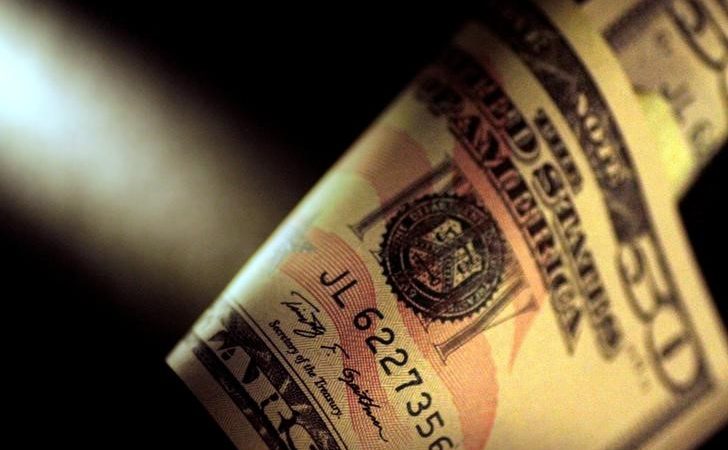
Dollar boosted by Fed leadership talk; Aussie dives
By Jemima Kelly
LONDON (Reuters) – The dollar traded near a three-month high against the yen on Wednesday, underpinned by reports that Republican senators were favoring John Taylor to become the next head of the U.S. Federal Reserve.
Australia’s dollar was the biggest mover among major currencies, tumbling as much as 0.8 percent against its U.S. counterpart to a 3-1/2-month low <aud=d4>after weak Australian inflation data.</aud=d4>
The dollar climbed 0.2 percent against a basket of major currencies, close to its highest levels in three weeks (DXY).
Taylor, a Stanford University economist, is seen as someone who could put the Fed on a path of faster interest rate increases compared with current Fed Chair Janet Yellen, whose term expires next February.
Bookmakers’ odds on Taylor becoming the next chair almost doubled overnight, according to RBC Capital Markets, from 18 percent to 34 percent.
“Anything that reduces the probability of Yellen being reappointed necessarily means the Fed looks more hawkish than it would otherwise. The general perception is that there’s no one more dovish than Yellen,” said the bank’s head of currency strategy Adam Cole, in London.
U.S. President Donald Trump used a luncheon with Senate Republicans on Tuesday to get their views on who he should pick to head the Federal Reserve, according to senators who attended.
A source familiar with the matter said more senators preferred Taylor than Fed Governor Jerome Powell, and that Trump had also said he was considering reappointing Yellen.
The dollar was trading flat at 113.87 yen <jpy=ebs>, close to Monday’s peak of 114.10 yen, which was the dollar’s highest since July 11.</jpy=ebs>
The reports of support for Taylor as the next Fed chief, helped offset news of Republican infighting that could hamper the passage of a tax cut plan.
Australia’s dollar tumbled to as low as $0.7715 after the September-quarter consumer price index figures came in below market expectations, making investors see less chance of increases in Australian interest rates in coming months.
“Due to weak inflation levels the Reserve Bank of Australia is likely to wish that the currency would depreciate notably,” wrote Commerzbank (DE:CBKG) strategists in a research note.
“There are only two ways to achieve that: either it bets on the Fed strengthening the dollar with a continuation of its rate hike cycle or it takes control itself and eases its monetary policy, moving in the opposite direction of most central banks at present, thus actively weakening the Australian dollar.”
The euro held steady at $1.1761 <eur=>, with the near term focus on Thursday’s European Central Bank policy meeting.</eur=>
According to a Reuters poll of economists, the ECB is expected to announce on Oct. 26 that it will start trimming its monthly asset purchases to 40 billion euros from 60 billion euros in January.


